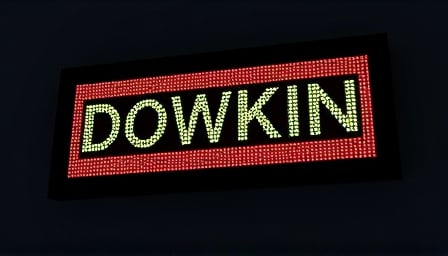Trade Desk Inc. Faces Turbulence Amid CFO Departure and Tariff Warnings
In a dramatic turn of events, Trade Desk Inc., a leading advertising technology company, has experienced a significant stock plunge, driven by a combination of internal leadership changes and external economic pressures. The company, known for its robust online display, social, mobile, and video advertising campaigns management platform, is now grappling with investor skepticism and market volatility.
CFO Departure and Wall Street’s Reaction
The catalyst for the recent turmoil began with the unexpected resignation of Trade Desk’s CFO, who had been with the company for over a decade. This departure sent shockwaves through the market, leading to a nearly 40% drop in the company’s stock price following its Q2 earnings report. Despite the earnings per share (EPS) aligning with consensus estimates and revenue surpassing expectations, the market’s confidence has been severely shaken.
BofA Securities analyst Jessica Reif Ehrlich responded to the news by downgrading Trade Desk’s stock from “Buy” to “Sell,” slashing the price target from an undisclosed figure to $55. This move underscores the growing impatience among investors and analysts, who are increasingly concerned about the company’s future direction without its long-standing CFO.
Tariff Uncertainty and CEO Warnings
Compounding the internal challenges, Trade Desk’s CEO, Jeff Green, issued a stark warning about the ongoing tariff uncertainty impacting large brand advertisers. This announcement led to a further decline in the company’s stock, with shares tumbling by a third during premarket trading. The potential implications of tariffs have raised alarms about the broader economic environment and its effect on Trade Desk’s clientele.
Market Performance and Historical Context
Reflecting on the past year, Trade Desk’s stock has seen significant fluctuations. A year ago, the stock was valued at $88.27, and while it has experienced growth, the recent downturn has erased much of its year-to-date gains. The company’s market capitalization stands at $42.52 billion, with a price-to-earnings ratio of 109.13, highlighting the high expectations placed on its future performance.
Earnings Report and Growth Challenges
Despite reporting a 19% year-over-year revenue increase, driven by advancements in AI and strategic partnerships, Trade Desk’s Q2 results revealed a slowdown in revenue growth. This deceleration has raised concerns about the company’s ability to sustain its previous growth trajectory amidst macroeconomic challenges.
Looking Ahead
As Trade Desk navigates these turbulent waters, the appointment of Alex Kayyal as the new CFO marks a pivotal moment for the company. Investors and analysts will be closely watching how this leadership change, coupled with the company’s strategic initiatives, will influence its ability to overcome current challenges and restore market confidence.
In conclusion, Trade Desk Inc. finds itself at a critical juncture, facing both internal leadership transitions and external economic pressures. The coming months will be crucial in determining whether the company can stabilize its stock performance and reassure investors of its long-term growth potential.
